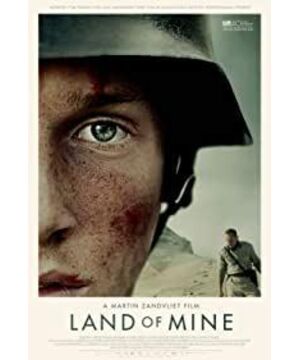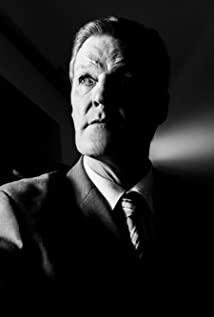face of an enemy, whether we can reach the other's heart through the other's "identity" is one of the yardsticks for judging a person's mediocrity or greatness. Identity is opposite, but human nature is universal. Some people will always deal with surface identities and fall into endless hatred, while some people have more profound spiritual interactions after getting along with each other in daily life.
Compared with those World War II movies with war scenes, this "Minefield" is calm, but under those desolate and quiet daily life, there are hidden dangers that may burst at any time. Landmines are not only buried under the sand, but also in the depths of human hearts and human nature.
This is a story adapted from real history. Few people know that after World War II, a large number of landmines were left near the coast of Denmark. More than 2,000 German prisoners of war were sent to minefields, and more than 1.5 million landmines on the west coast of Denmark were cleared at the cost of half of the prisoners of war casualties, most of them very young boys.
"Minefield" tells the story of a demining team, a Danish military officer, guarding and leading a group of German prisoner of war boys, risking their lives on an uninhabited coastline to remove one after another. To some extent, letting these German soldiers mine mines is an extremely malicious act of revenge. They occupied Denmark for five years. Now, the Danish soldiers want to watch these defeated bandits be killed by the evil fruits they planted. What can speed up feelings of enmity than this? For most people, this emotion is particularly easy to understand.
However, for the officer overseeing this work, Carl, ideology, hatred, and wartime hostility are one thing, and after getting along day and night, watching this group Young boys are hungry and cold, and one by one is blown to pieces by landmines, which is another matter. This group of children are almost as old as his sons. In his heart, he may warn himself time and time again that these people are invaders, but in life, what he sees is a group of helpless young people looking forward to returning home to reunite with their mother.
Human emotions and emotions are very wonderful things. When we treat people as a symbol, we can easily hate and kill them. However, when they are reduced to people with physical bodies and emotions, our hearts There will be subtle waves unconsciously. This kind of thing is called empathy. To some extent, it is empathy that makes us truly human, not cold animals or machines. We can empathize with others, whether he is our enemy or our lover. Sometimes this makes us feel full, but sometimes it also makes us at a loss. For example, Carl’s current situation is like this. From the perspective of his professional status, he must be ruthless. This is the duty of a soldier. He should treat them as tools and objects. However, they talk and communicate every day. He cannot fail. Emotional, and as human identities, he treats them as ordinary children. Reflecting this behavior from the perspective of professional status, "sympathy" is approximately equal to "shaking", especially when people's anger is far from being eliminated when this kind of war has just ended.
The Nazis’ eradication of Jews had a prerequisite basis, which was to “dehumanize” the latter a little bit in terms of language and behavior, and use metaphors such as bed bugs to refer to the other party. After a long time, it would smoothly make people silent. No more psychological grievances when starting with the latter. But now, it seems that everything has begun to turn around quietly. If Carl really doesn't treat those children as human beings, wouldn't he become the one he opposes and hates? What is the difference between myself and the Nazis?
What's more, in addition to this kind of human dilemma on the personal spiritual level, there is also pressure from the real level. His chief used a righteous and rigorous way to remotely command, while the soldiers at the bottom regarded these children as inferior lives that vented their anger. Carl promised the children that after completing this task, he would return home soon. But in the end, he discovered that the superiors didn't want the group of prisoners of war to leave here easily. Carl couldn't accept that he became an "enemy", and he couldn't accept the beating and teasing of the boys by his colleagues. It was about his conscience.
This kind of setting where universal humanity is placed in special wartime oppositions is actually not uncommon. In this "Minefield", there are more cruel scenes. The group of unarmed demining children often have nothing to do. They were blown off their hands and feet under the sign, and even so, they still had the desire to be able to go home if they could complete the task. But in the end, most of them went to death with desire.
There is a silent emotional change in "Minefield". At first, Karl fisted and blamed the group of children. Later, he sat down and chatted with the children, joked, and even gave them a day off and kicked together on the beach. Football looks more like a teacher taking a group of students on holiday by the sea. The endless white sandy beach was supposed to be a landscape, but now it means death. When Carl turns from a violent officer to an easy-going man, we can understand that when all identities are removed and facing each other as human beings, the war really ends at that moment. An armistice is not just that the actual artillery fire will no longer be ignited, as long as the artillery fire in people's hearts is still burning, the war is far from over.
In the end, Carl made a choice. He let the few surviving children go and let them cross the border. As a professional soldier, he made a big mistake, but from a human point of view, he used his kind deeds to truly end the war and get rid of a landmine in his heart.
View more about Land of Mine reviews











